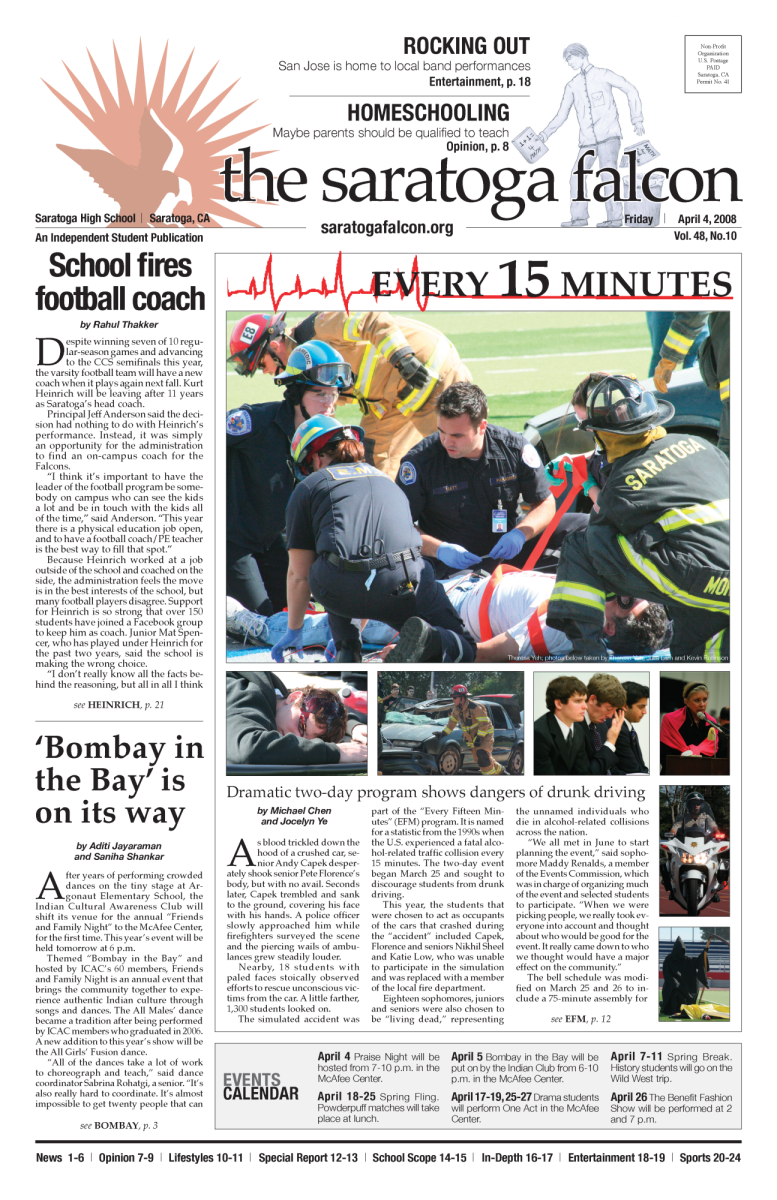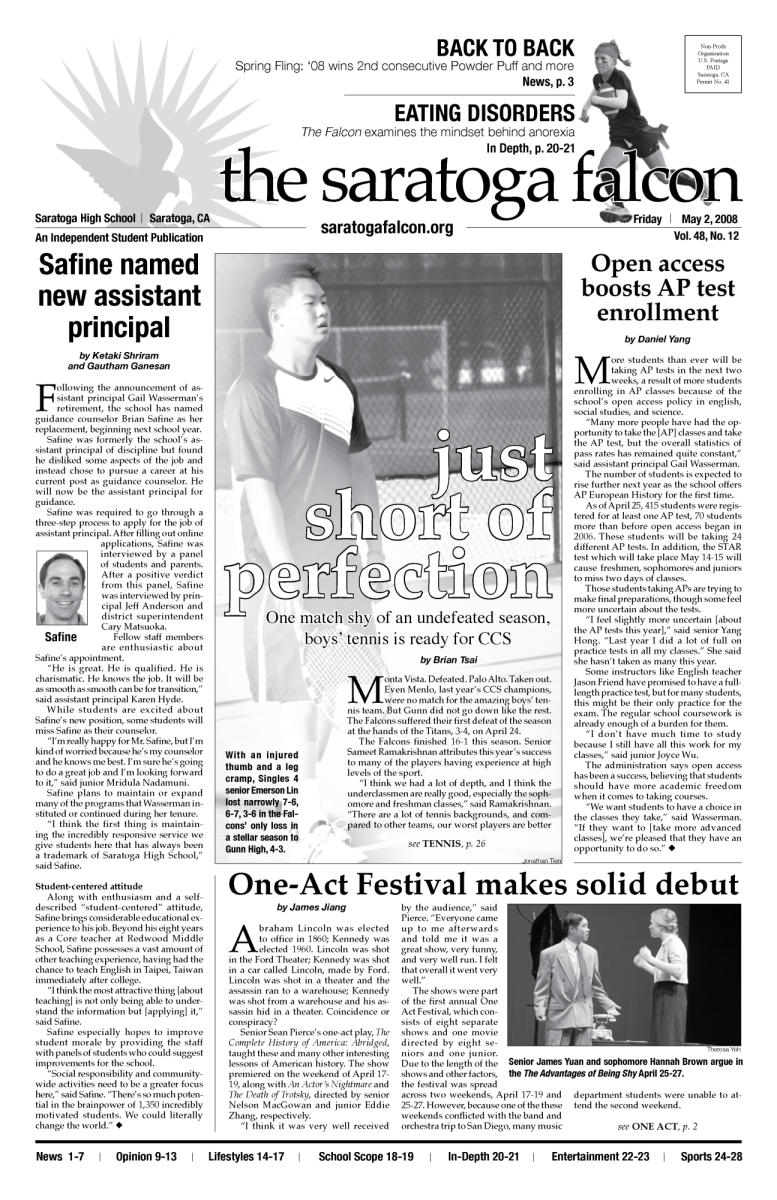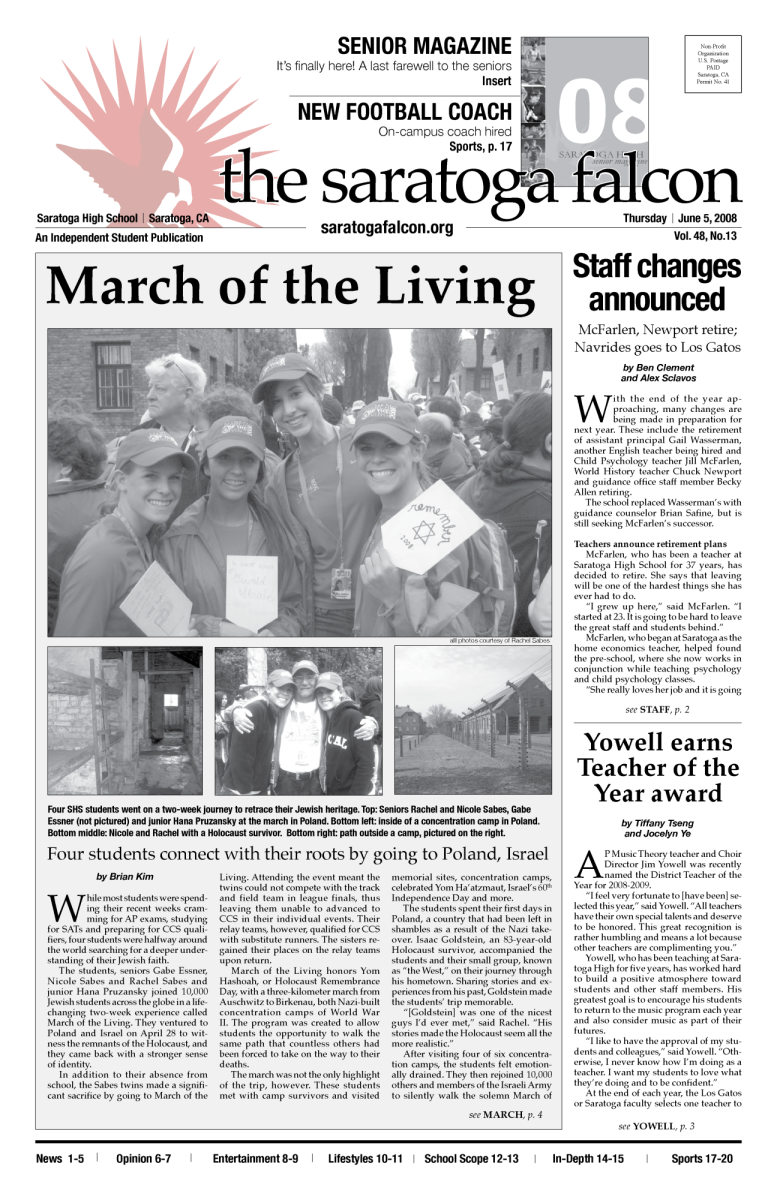As 9-year-old Jeanette Arakawa looked on in terror, two FBI agents sequestered her family under house arrest in San Francisco. Although they were cleared of any wrong-doing, they were soon relocated to an internment camp, an experience she will never forget.
Arakawa, now 84 and living in the Los Altos Hills, is a survivor of the internment of Japanese Americans during World War II. She met and became friends with fellow survivor Margaret Abe, mother of history teacher Kirk Abe, when their husbands had offices in the same building.
In May, Arakawa will be releasing an autobiographical piece of fiction called “The Little Exile,” about her experience and memories of Japanese internment camps during World War II. Though Margaret Abe also experienced internment camps in Amache, Colo., and Tule Lake, Calif., she said that she couldn’t remember anything about them since she was too young at that time.
In accordance with the FBI’s investigation of Japanese Americans after the bombing of Pearl Harbor, the Arakawas were one of many families placed under house arrest in 1942. Soon after their release, the government dictated that Japanese Americans were to be relocated to the camps.
Arakawa’s family first went to Stockton to join her grandparents, a temporary move to bring together relatives. After three months, they were imprisoned in an assembly center, or temporary camp, that occupied the San Joaquin County Fairgrounds. Each family was assigned a bedroom with bathrooms located in a separate building, and their meals were served in a mess hall.
Five months later, Arakawa and her family were transported to their more permanent home, the Rohwer Relocation Center in Arkansas, a place with meager living conditions where they lived in for three years. With the camp situated in swampy bottomlands, residents suffered from the effects of humidity year-round and a lack of indoor plumbing or kitchens. They arrived in Arkansas in October, 1942 and left in July, 1945, shortly before the war ended.
Despite the hardships of internment, Arakawa recalls a sense of unity established in Rohwer.
“There were many opportunities to meet kind, compassionate people. They became a village for me,” Arakawa said.
Arakawa’s internment also reaffirmed friendships with others outside of the camp. Her best friend at the time, a white girl who was the daughter of the Captain of Inspectors of the San Francisco Police Department, sent Arakawa a large radio which had been confiscated from them shortly after Pearl Harbor as well as other living items, including sweaters and skirts, to the camp.
“The memory of [the captain and his daughter’s] kindness is forever etched in my mind,” Arakawa said.
Arakawa blames the internment of Japanese Americans on the rampant racism and xenophobia against Asian immigrants that began in the 19th century with “blatantly discriminatory laws” such as the Anti-Miscegenation Act of 1850, the Chinese Immigration Act of 1882, the California Alien Land Law of 1913 and Immigration Act of 1924, which all limited marriage choices, land and property ownership, immigration and naturalization.
However, immigrants from the affected countries tolerated these restrictions and most still preferred the U.S. as their home over their birthplace, according to Arakawa.
“Despite the racism, they discovered that the culture and politics of our country offered more freedom and opportunities than found in their native countries,” she said.
While being restricted by discriminatory laws and living in war camps, Arakawa said her experience at Rowher also stripped away her confidence at the time.
“After camp, I had become fearful of crossing streets and traffic, overwhelmed by the stocked shelves in the grocery store, and lacked confidence in approaching strangers, particularly folks who were not Japanese,” Arakawa said. “Most of all, I missed the ‘village’ which was my support system.”
Arakawa had been a gregarious child until the camps, but then felt herself becoming shy and withdrawn. For many years, she felt personally responsible for Japan’s attack on Pearl Harbor to the point where she could not bring herself to go out in public on Dec. 7 in the years afterward, she said.
After the Arakawas were released from camp, Arakawa’s parents decided that Denver, Colo., would be safer than returning to California. However, the available housing for the family was still crude and making friends at school was a particularly difficult challenge for young Arakawa, an eighth grader at that time, who claimed the school to be a “hostile environment.” After a year in Denver, they decided to return to San Francisco to join their extended family.
“For me, it was a very difficult transition from camp life to being ‘outside,’” Arakawa said.
Survivors of the camps are now elderly, but the lessons of their experiences remain fresh to members of their families.
“You don’t want internment to happen again,” Kirk Abe said. “Rounding up people based on their ethnicity but not on their actions is very dangerous.”
Although the Japanese internment happened roughly 75 years ago, many Americans are drawing parallels to the fear and prejudice faced by Muslims and Mexicans today.
“The basis for the treatment of persons of Japanese descent in the United States during World War II was not based on reason and substantiated facts, but irrational emotions and ignorance,” Arakawa said.
She hopes that revisiting the experience at this particular time in our history will help to keep such massive prejudice from happening again.
“If the insipid racism had not been permitted to grow unchecked, perhaps the disruption of 120,000 innocent individuals could have been prevented,” Arakawa said. “If what [philosopher and writer] George Santayana said is correct, ‘Those who cannot remember the past are condemned to repeat it.’”



























